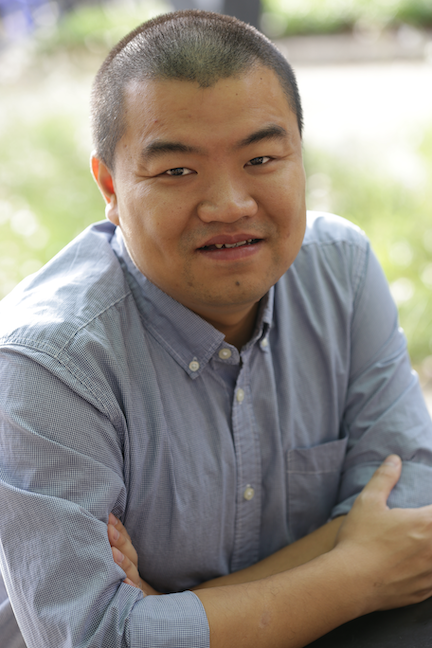Journal of Communication
Special Issue Call for Papers
Theme
Time in Communication Research and Theories
Guest Editors
Tai-Quan “Winson” Peng (Michigan State University, USA)
Zheng Joyce Wang (Ohio State University, USA)
Overview
Communication research embraces a constant ebb and flow of emerging and changing technologies, phenomena, concepts, methods, and theories. Trends evolve, ideas emerge, and paradigms shift. Amidst this ever-changing landscape of research, one constant remains unwavering: time. Time shapes the way we conceptualize, examine, and understand the complexities of communication representations, structures, relations, changes, and processes.
This Special Issue (SI) aims to propel time into the forefront of communication research. We encourage scholars to transcend mere methodological considerations and to challenge prevailing conceptions of time in communication research, such as viewing time solely as a limited resource or a linear progression. We invite communication scholars to explicate, elaborate, or conceptualize this fundamental dimension of communication, to delve into its intricacies and complexities, to explore its multifaceted meanings, and to construct and advance communication theories.
Submissions to this SI should place time at the core of their research, shifting it from a mere backdrop or a control variable to a primary focus in theorizing or modeling communication. Below are a few examples, but this list is by no means exhaustive.
- Explicate time as a multi-dimensional concept in communication research. Manuscripts are encouraged to delve into various aspects of time, from our current understanding of its nature in the physical world (e.g., International Atomic Time, the spacetime continuum in physics), to its subjective qualities (e.g., temporality), and its role as a socially constructed concept. For example, research can explore the shared and differentiating experience and perception of time in communication in and across specific social or cultural settings.
- Elucidate the concept and role of time across multiple communication domains. As different communication processes converge through interactive communication technologies and networks, systematic and comprehensive endeavors are needed to conceptualize time across two or more communication domains. For example, the research can investigate the interactions and influences of time or temporalities from one communication domain onto another, and explore whether such interactions might give rise to novel forms of temporal experiences.
- Theorize the concept of time across multiple levels in human communication. Research can integrate unobservable lower-level “blackbox” processing to observed higher-level behaviors, and integrate our understanding across levels, from individual, group/organizational, to social (e.g., from individuals’ perceptions, attitudes, and memories to collective perceptions, attitudes, and memories).
- Re-calibrate the role of time in media effects research. Time holds a pivotal position as an essential methodological element in this realm of study. Submissions are expected to transcend conventional assumptions within media effects research, revealing fresh perspectives that enrich the ongoing discourse and pave a path toward a more holistic understanding of the intricate interplay between components in communication systems and processes.
Submissions falling under the following categories are NOT a priority for this SI: (1) studies with a narrow, or one-dimensional perspective of time, or overlooking dynamic communication mechanisms; (2) studies primarily consisting of traditional literature reviews without substantial new empirical or theoretical insights, or methodological innovations; (3) studies relying on conventional research methods without innovative perspectives or approaches that can advance theoretical understanding; and (4) studies lacking relevance and significance to the broad field of communication, unable to reshape the treatment of time in our discipline.
The SI welcomes contributions from all areas of communication research and encourages interdisciplinary collaborations. The SI is inclusive of the broad spectrum of epistemic and methodological approaches in communication, such as qualitative research, quantitative research, critical and cultural studies, and historical studies. By dispelling the enigmatic nature of time (Chaffee,1991) through exemplar studies, the SI aspires to foster a dynamic dialogue that fundamentally transforms how we perceive and investigate communication processes (Berlo, 1977). Given that time serves as a shared foundation across all subfields of communication and other disciplines, this SI is expected to cross-fertilize scholarship among communication subfields and between communication and other disciplines (e.g., philosophy, history, psychology, sociology, political science, management science, linguistics, computer science).
Information on submission and publication
Authors are invited to submit extended abstracts by March 15, 2024 (ICA Headquarter time, U. S. Eastern Time Zone). The extended abstract (up to 1500 words, double spaced, 1”/2.54cm margins, 12-point Times New Roman Font) should: (1) establish the relevance and significance of time as a fundamental factor in your research context; (2) clearly state your research objectives and questions, and elucidate the underlying theoretical framework/model; (3) describe your specific approach and method; and (4) showcase the expected contributions of your research, such as fresh insights, innovative methodologies, and novel theoretical perspectives. Tables, figures, appendices, and references do not count against the word limit in extended abstracts.
Please go to https://mc.manuscriptcentral.com/jcom (the standard Journal of Communication submission site) and submit your extended abstract as an original article submission. The online system will ask along the way whether your submission is to be considered for a special issue. Please indicate “yes” at this stage and click within the follow-up entry that the work is being offered in relation to the “Time in Communication Research and Theories” special issue. The remaining submission steps are identical to a standard Journal of Communication submission.
Notifications regarding invitations for full papers or desk-reject decisions will be promptly communicated, dependent on the volume of received extended abstracts. The anticipated date for notifications about the extended abstracts is currently set for April 15, 2024. All invited manuscripts will undergo the standard peer-review process of JoC. The full release of the special issue is expected between the fall of 2025 and the spring of 2026. However, accepted manuscripts will be made available as online-first publications upon acceptance.
References
Berlo, D. K. (1977). Communication as process: Review and commentary. Annals of the International Communication Association, 1(1), 11–27. https://doi.org/10.1080/23808985.1977.11923667
Chaffee, S. (1991). Communication concepts 1: Explication. Newbury Park, CA: Sage.
